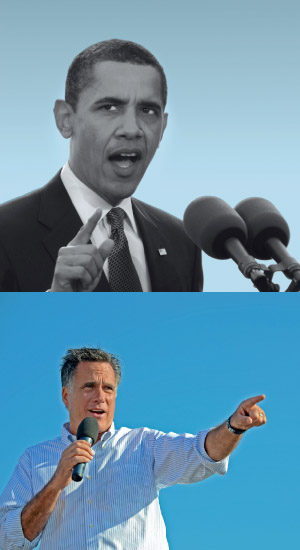A really excellent piece by Will Swaim on IP in Global Trade magazine’s November 2012 issue, in its regular “The Big Idea” section. The piece quotes extensively from me and other libertarian IP opponents such as Sheldon Richman and Tom Bell:
PATENTLY EVIL
What if ‘intellectual property’ is bad for business?
[ by Will Swaim ]

Outside the GOP convention, they hate capitalism. Inside, they worry about rising China.
The air around the Republican convention in Tampa, Florida, in August was stifling, and not just because of meteorological phenomena. As Hurricane Isaac wheeled through the Gulf of Mexico, the humidity spiked and otherwise easygoing Floridians became a little edgy. In the city’s historic Ybor City district, a mostly young crowd of about 1,500 protesters marched for several blocks, noisily but peacefully denouncing Republicans, capitalism and even meat. Geographically (and perhaps symbolically) closer to the St. Pete Times Forum where Republicans were gathered to hoist Massachusetts Gov. Mitt Romney to their shoulders, libertarians—again, mostly young—protested the Republican Party’s rough handling of Ron Paul, the Texas congressman and erstwhile presidential candidate.
Inside the convention center, delegates put the finishing touches on the Republican Party’s platform document, this year titled “We Believe in America.”
If you’re a global trader, reading the platform’s statement on intellectual property, or IP, might have sent you into the streets to join the lefties and libertarians outside.
Like their Democratic counterparts, the Republicans who drafted the GOP statement of ideals fail to understand the possibility (just the possibility) that protecting ideas the way you would your home or your wallet—as actual “property”—is bad for America.
After properly celebrating exports as “crucial for our economy,” the 2012 Republican platform bemoans the theft of intellectual property, the “downside” in the “worldwide explosion of trade.”
“Some governments have used a variety of unfair means to limit American access to their markets while stealing our designs, patents, brands, know-how, and technology—the ‘intellectual property’ that drives innovation,” the platform reads. “The chief offender is China.”
We expect the Democratic Party, with its roots sunk firmly in organized labor, to amplify protectionist anxieties. But the Republicans? The party of limited government?
The GOP platform suggests that a Mitt Romney administration would resort to trade wars in order to punish intellectual property theft abroad with the hammer of righteousness. “Republicans understand that you can succeed in a negotiation only if you are willing to walk away from it,” it reads. Under a President Romney, “[c]ounterfeit goods will be aggressively kept out of the country. Victimized private firms will be encouraged to raise claims in both U.S. courts and at the World Trade Organization. Punitive measures will be imposed on foreign firms that misappropriate American technology and intellectual property.”
The convention also featured a kind of Exhibit A, speaker Steve Cohen, president of Screen Machine Industries of Etna, Ohio, a U.S. exporter meant to represent all exporters.
Cohen started with the inarguable (“As a manufacturer, our products are the heartbeat of our business”), before telling the audience that his company spends “tens of thousands of dollars to achieve patent status. Once granted, we expect it to be protected. Our products are often stolen and copied overseas for a mere fraction of the price. We can’t tolerate other companies stealing our hard work without compensation.”
Cohen concluded that, among other things, “We need a new president that will protect America’s patented inventions.”
But do we need such a president? What if IP, as a concept in law, is bad for America?
Let’s pause for a moment to acknowledge that party conventions are to economic philosophy what a child’s Halloween costume is to her actual desire to live as a sharp-toothed vampire. It’s aspirational theater, mostly, theater that is, in this case, aimed at attacking the incumbent president and appealing to American anxiety about the rise of China.

Free trader Kinsella His take: IP is a form of slavery.
And while we’re paused, let’s note that Democrats say President Barack Obama has already delivered everything on the GOP wish list where IP is concerned. “The administration is vigorously protecting U.S. intellectual property—our technology and creativity—at home and abroad through better enforcement and innovative approaches such as voluntary efforts by all parties to minimize infringement while supporting the free flow of information,” the party’s official website says. There’ve been “customs seizures” of counterfeits, prosecutions of “illegal overseas transfer of trade secrets” and the promise of more of the same in the future: “we will continue to work with all stakeholders to protect the security of the nation and its knowledge assets, U.S. intellectual property, the functioning of fair and competitive markets, and the privacy, free expression, and due process rights of Americans.”
But the fact of such bipartisan agreement on IP doesn’t make it right, and ignores experts who believe that patent, copyright and trademark laws supporting intellectual property limit global trade and slow economic growth.
“The case against patents can be summarized briefly: There is no empirical evidence that they serve to increase innovation and productivity,” write Michele Boldrin and David K. Levine in their forthcoming book, The Case Against Patents. The authors go further, declaring that IP is actually damaging—that patents and copyright laws are “trade restrictions” that “prevent the free entry of competitors in national markets, thereby reducing the growth of productive capacity and slowing down economic growth. The same way that trade restrictions were progressively reduced until reaching (almost complete) abolition, a similar (albeit, hopefully less slow) approach should be adopted to ‘get rid’ of patents.”
Far from sparking innovation, the authors say, intellectual property law is “the dead hand of dying institutions—Texas Instruments was famous for this and now we have the example of Microsoft . . . . When an industry matures, innovation is blocked by the ever-increasing appeal to intellectual property protection on part of the insiders.”
“Patent and copyright law are anti-competitive, artificial state grants of monopoly privilege with their roots in mercantilism, protectionism, censorship and thought control,” Stephan Kinsella, prominent IP attorney and leading libertarian and intellectual-property theorist, tells Global Trade.
In Against Intellectual Property and other works, Kinsella underscores that his disdain for IP is not just logical and ethical (though that’s key to his thinking). It’s also immensely practical.
His lifetime of meta-study (that is, studying the studies) into the actual impact of intellectual property law leads him to this conclusion: “There is no evidence whatsoever that these laws do anything other than enrich special interests—like Hollywood, the music industry and Big Pharma—at the cost of reduced innovation, competition, consumer choices and higher prices.”
Even if you could show that IP law produces innovation, there’s the question of its burden in costly litigation, which Kinsella figures “in the hundreds of billions of dollars.”
What would Kinsella want to see in place of saber-rattling talk of trade wars around the issue of foreign IP theft? “America should be busy limiting, restricting, or even repealing its own draconian, anti-market patent laws, not pressuring other economies to change their laws at the threat of reducing consumer choice by imposing free trade restrictions or other punitive measures on developing economies.”
“We should lead by example by re-examining our own anti-market laws, and by unilaterally adopting free-trade policies.”
There’s an old joke about a wise, aging fish who swims by two young guppies and says to them, “How’s the water, boys?” One of the guppies turns to the other and asks, “What’s water?”
Intellectual property is like that, so much a part of American culture that we’ve stopped noticing. We hardly consider the concept at all and, when we do, our arguments in favor of IP generally come down to the vague sense that we ought to protect designers’ investments in their designs in order to reward innovation.
In part, this confusion might be related to the use of the phrase “intellectual property” and the resonance of the word “property” in American political history. The Constitution promises to protect Americans’ right to “life, liberty and the pursuit of happiness”; but that was a last-minute change to the earlier “Declaration and Resolves of the First Continental Congress,” in which “the pursuit of happiness” had been “property”: life, liberty, property.

Not So Different After All When it comes to IP, they’re practically soulmates.
Embedded in the Constitution’s copyright and patent clause, the notion that ideas are things that can be owned also resonates in such antipodal places as Hollywood and wherever followers of Ayn Rand gather. Hollywood has led the way in fighting piracy of ideas (movies and music, for instance), at home and abroad. And if you’ve ever seen the bumper sticker “Who is John Galt?” you’ve heard of the late Ayn Rand. Her stock jumped recently when it was revealed that Congressman and GOP vice presidential nominee Paul Ryan gives out copies of Rand’s novel Atlas Shrugged as Christmas gifts and requires his staff to read it. John Galt is the nearly divine presence in Atlas Shrugged, the ur-capitalist into whose mouth Rand places her own philosophy on the primacy of ideas, including the line, “Man’s mind is his basic tool of survival.” Naturally, anything man builds with that “basic tool” is his to keep, and “Patents and copyrights,” she writes in Capitalism: The Unknown Ideal, “are the legal implementation of the base of all property rights: a man’s right to the product of his mind.”
So why shouldn’t an idea be considered property? Because it’s self-contradictory, says Kinsella: “A copyright, for instance, is a grant by the state that permits the copyright holder to prevent others from using their own property—e.g., ink and paper—in certain ways.” That’s not protecting property, he concludes. It’s slavery.
An idea can’t be the source of a property claim, agrees libertarian Sheldon Richman. “Ideas contribute no necessary additional factor” to a product. “If I build a model airplane out of wood and glue, I own it not because of any idea in my head, but because I owned the wood, the glue and myself.”
Chapman University professor of law Tom W. Bell puts it this way: “Were I now to start singing a copyrighted song, for instance, I would thereby infringe on someone else’s intellectual property rights. But it’s my throat; it’s your ears. Where does anyone get the power to tell us we can’t do that?”
They get it from the Constitution (Article I, Section 8, Clause 8), which empowers the Congress “To promote the Progress of Science and useful Arts, by securing for limited Times to Authors and Inventors the exclusive Right to their respective Writings and Discoveries.”
In fairness to the Founders, they didn’t see intellectual property as property like land that ought to be protected, Kinsella says. They saw “patent and copyright as temporary, limited measures the state might adopt to try to stimulate innovation.”
“When the founders authorized patent and copyright law in the Constitution in 1789, they had no empirical studies showing that it generated net societal welfare gains,” Kinsella says. “And in the ensuing 200-plus years, no studies show this. Most empirical studies are either inconclusive or suggest that IP law imposes overall costs on innovation and the economy. So if you are a sincere utilitarian, you would be against IP. The problem with the empirical argument for IP is that it has ethical problems and methodological problems, and even ignoring these, there is simply no empirical evidence to prove the basic assumptions underlying IP law.”
August was a busy month for intellectual property. A few weeks before the Republican convention in Tampa, a New York judge dismissed Paris-based shoemaker Christian Louboutin’s request that the United States stop Yves Saint Laurent, another Paris-based designer, from selling shoes with red soles. The judge reached his conclusion despite the fact that Christian Louboutin had a trademark from the U.S. Patent and Trademark Office granting it the exclusive right worldwide to produce shoes with red soles.
You might believe reason had triumphed in the case of the red-soled shoes, except for the fact that (1) Christian Louboutin got a trademark for red soles in the first place and that, (2) a few weeks later, a judge agreed that the trademark was enforceable. “We hold that the lacquered red outsole, as applied to a shoe with an ‘upper’ of a different color, has ‘come to identify and distinguish’ the Louboutin brand and is therefore a distinctive symbol that qualifies for trademark protection.”
In reaching this conclusion, the appeals judge, writing with that quality of a medieval monk describing winged bodies at movement on the head of a pin, proceeded to describe in detail that the trademark covered only those women’s shoes on which the upper was a color other than the red, but not “monochromatic” shoes.
Thanks for the fashion tip, judge. Also: never wear socks with sandals.
You and I might agree that red soles are hardly critical to the economy. But the point is that patents are exploding everywhere—not just in fashion, but in software, pharmaceuticals and engineering.
High-tech, for instance, is awash in IP lawsuits. Around the time of the Christian Louboutin decision, a Silicon Valley jury ordered South Korea-based Samsung to pay Apple Inc. $1 billion for infringing on Apple’s iPhone patents. It was the third-largest patent award in U.S. history, and will likely become the largest ever when Apple requests additional damage payments.
That was a huge award but not an isolated decision, even in the relatively niche field of smartphones where lawsuits are common. Why? Because “the average smartphone may arguably infringe as many as 250,000 patents, not to mention myriad copyrights and other design-related intellectual property,” Brian J. Love, assistant professor of law at Santa Clara University School of Law, wrote in the Los Angeles Times.
That could lead—has led—to an avalanche of lawsuits, and those lawsuits would likely stall innovation and infringe on freedom. That’s why Apple co-founder Steve Wozniak criticized the Apple-Samsung decision. “I hate it,” Wozniak told Bloomberg. “I don’t think the decision of California will hold. And I don’t agree with it.” He dismissed Apple’s technology advances as “very small things. I don’t really call that innovative.”
Wozniak’s solution: trust the free market. “I wish everybody would just agree to exchange all the patents and everybody can build the best forms they want to use everybody’s technologies,” he said.
Once upon a time, Apple seemed to foresee the same free (or at least freer) society. That was when it helped form the Coalition for Patent Fairness, a group of tech and financial industry giants dedicated to limiting bedeviling IP lawsuits and gigantic damage awards. “When the shoe was on the other foot,” Love wrote in the Los Angeles Times after the Samsung decision, Apple “was content to check its patent law principles at the courtroom door: It actually asked for far more than it received, about $2.5 billion total in ‘compensatory’ damages.”
When I ask Kinsella to describe a world in which intellectual property as property no longer exists, I await his answer almost breathlessly. Does he see personal space-transport vehicles? A cell phone chip in my skull that I activate by slapping the Star Trek brooch on my chest? Red soles on almost everybody’s shoes? Would innovation proceed so rapidly that our machines would soon design, build, market and deploy our newer machines at a rate of speed almost immeasurable until we would be liberated from our physical bodies and become nothing more than pure consciousness?
Kinsella is surprisingly laconic. “I think it would be much as now,” he says. “Reputation would matter a lot. People would compete and innovate as before, but they would be even freer to innovate and compete.”
That would be reward enough.
There’s one last reason to be skeptical about the virtues of intellectual property: the U.S. will soon no longer dominate worldwide filings—not if the government of the People’s Republic of China has anything to say about the matter. “According to a . . . document provided by the [Chinese] patent office, China’s goal for annual patent filings by 2015 is 2 million,” the New York Times reported. That’s about a quarter of all filings approved by the U.S. Patent Office in its 221-year history, and the Chinese say they’ll do it in the next two years.
Republicans and Democrats—Americans—may want to consider that the Chinese are likely to emulate our own tough talk on the defense of intellectual property. Already a weapon in the war against freedom, IP litigation will suddenly be a weapon in someone else’s hands. Then, maybe too late, Americans will come to appreciate the virtues of a free market.




You must log in to post a comment. Log in now.